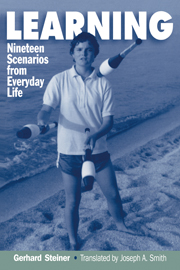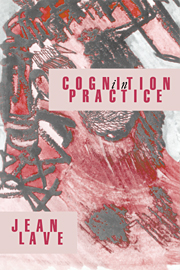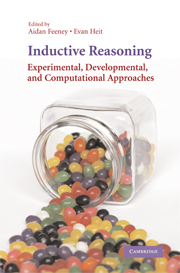Learning
This book is a systematic introduction to learning psychology. It describes, analyzes and explains learning by means of 19 scenarios from everyday situations. The reader may therefore connect theoretical considerations with experiences he or she can easily follow. Several scenarios stem from family situations, others from school and business, and still others refer to very individual learning processes: modification of one's own behavior, acquisition of motor skills, or elaborating one's knowledge structures or problems solving abilities. Having worked through the 19 scenarios the reader will be acquainted with the important learning theories: behavioristic, cognitive, social-cognitive as well as the Gestaltists'.
- Introduction into behavioristic as well as cognitive learning theories
- Connection of theoretical considerations and explanations with real situations (situated learning)
- Systematic didactical learning aids for the reader
Product details
January 2000Hardback
9780521472203
340 pages
234 × 157 × 28 mm
0.591kg
Available
Table of Contents
- 1. Fear of white aprons - classical conditioning
- 2. A learned heart attack? The problem of extinction
- 3. The World Fair's 'magic nails' - trial and error learning?
- 4. An untidy child becomes tidy - signals for new habits
- 5. Michael remains a troublemaker - of operant conditioning and the perils of reinforcement
- 6. How Rita unlearns to like drawing - reinforcements are not all alike
- 7. Waiting and learning to do without - learning to control one's own impulses and behavior
- 8. Learning prosocial behaviour- social-cognitive development and the learning of social value systems
- 9. Don't be afraid of exams - more than just desensitization
- 10. How managers learn to cope with stress - cognitive behavior training and the development of action-regulating cognitions
- 11. Learned helplessness in a senior high school student - non-contingencies and casual attributions
- 12. Learning to juggle - mastering the grammar of juggling
- 13. Learning from text - the construction of mental models
- 14. Building your vocabulary - mechanical learning and the elaboration of semantic networks
- 15. Fontane's 'John Maynard' - on global and specific learning and memory aids
- 16. Learning to count: the construction of numeric networks - Piaget's theory of genetic epistemology applied
- 17. How concrete is concrete learning, for example in geometry? - conceptual and figural components of learning.






